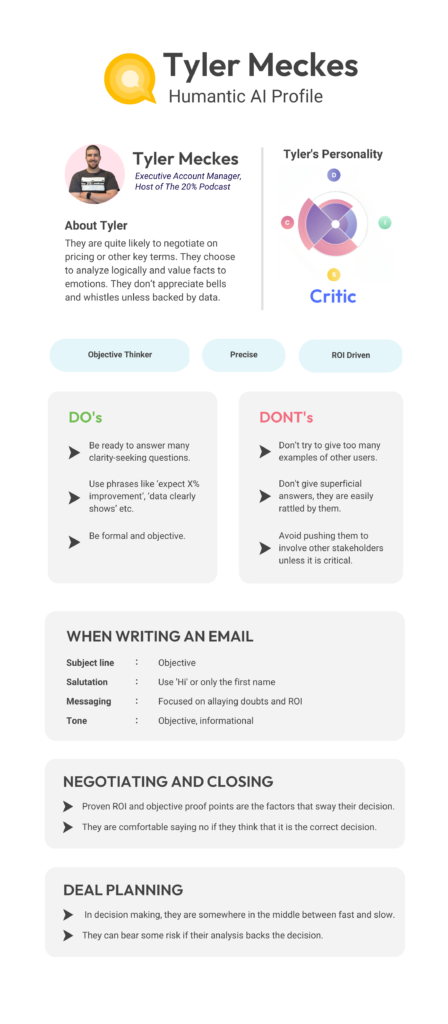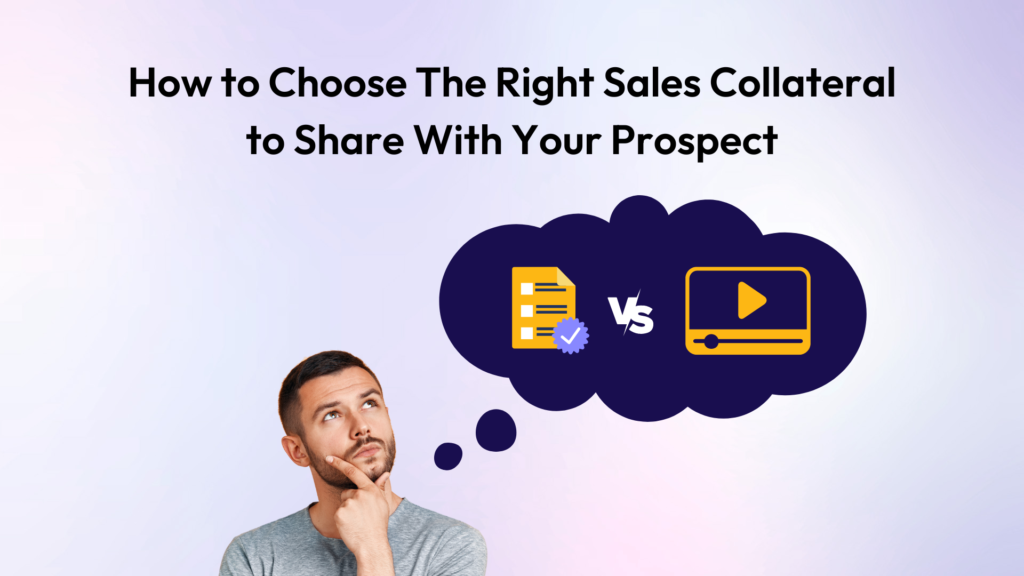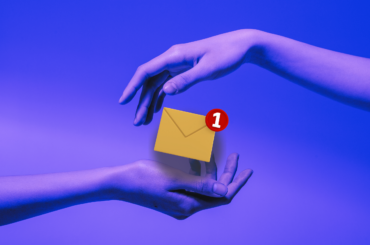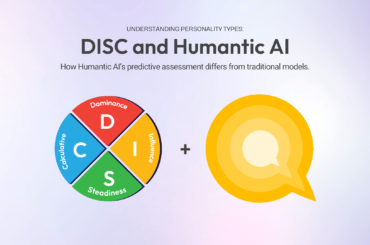Marketing and sales enablement teams put together a 100 different sales collateral on shared drive folders or their choice sales enablement tool. Yet, sellers keep sending the same one-pager or case study time and again, to every prospect they come in contact with.
Maybe you had some initial success with a particular piece of collateral, but is there a chance the same case study you’re sharing with a prospect to help them might actually be turning them away and hurting your chances of closing the deal?
Studies say yes. A report by Forrester suggests that 57% of buyers remarked that the content they receive is useless. This just means one thing – lack of personalization. More often than not, the content that’s supposed to help a buyer evaluate a product or service, isn’t tailored to the buyer’s needs.
The first step is acknowledging the problem. Most sellers understand that you can’t cookie-cut the same cold email, objection handling technique, or even the closing pitch, and satisfy all kinds of buyers. Why would choosing the right sales collateral be any different?
As a salesperson, if you’re sending them your favorite collateral instead of something the buyer would benefit from… that’s a problem. To determine which type of content works for any given prospect, you’d need insights into the type of person they are. Good for you, Humantic AI’s buyer intelligence is right here at your fingertips.
Dive in to learn what’s the right collateral to share with different kinds of buyers, based on their personality and preferences.
Which Sales Collateral Suits Your Prospect’s Style?
So, put on your detective hats and uncover what makes each prospect tick: what are their goals, decision-making factors, and absolute no-nos in their book. The more mindful you are in sending the right collateral that aligns with your buyer’s personality, the faster will you close that deal. What defines your prospect the best?
Goal-oriented buyers
For folks familiar with DISC Selling, these are buyers with a D-type personality. For folks who aren’t, it could be quite self explanatory. With an unwavering focus on outcomes, people with D-type personalities won’t settle for anything less. Get straight to the point and provide concrete evidence of your product’s credibility. Un-doctored screenshots of G2 reviews and case studies with a focus on real impact / results are the best collateral to sway them in your favor.
Relationship-oriented buyers
Identified as the I-type personality in the DISC world, these buyers are warm social beings who put a lot of value on people, stories, and interpersonal relationships. To win them over, build a genuine connection with them. What’s the best way to appeal to their emotions? Customer journey videos! They gravitate to stories and people, so naturally, they like to hear real stories from your customers instead of reading words off a PDF.
If you have a good relationship with an existing customer who has raving reviews for you and your product, you can take it step further and connect your buyer to them.
Risk-averse buyers
People with S-type personalities prefer stable, secure, and trustworthy relationships. Naturally, it takes time to build one. It can be tempting to fast-track it, but these aren’t the fastest movers and pushing them might actually turn them away. The type of collateral that works best for them are neutral case studies, news articles / blogs, or reports from a trusted third party. When dealing with a S-type personality in the B2B world, you can’t go wrong with Gartner, Forrester and Mckinsey reports.
Analytical buyers
Also known as the C-type buyer in DISC Selling, they are accurate, systematic and data-driven. What works wonders with them are any type of collateral that can show clear ROI, both in theory and in practice. A whitepaper that doesn’t sound too salesy or an unbiased ROI calculator microsite might be just what they need to speed up their purchase decision.
Let’s look at an example to see why tailoring collateral to a prospect’s personality is so important. A square peg can’t fit in a round hole.
Example: Tyler says (nothing, he never got back)
Let’s say I’m slinging productivity software and I just had a discovery call with Tyler who is an Executive Account Manager at Partner One IT. He sounds like an ideal prospect. Our product can help him reduce his workload by 1.5x. But he sounds a bit hesitant, maybe he has been looking around for alternatives. But hey, that’s alright. I trust my approach.
After the call, I shoot him an email with wonderful customer journey video, and success stories of similar businesses which benefitted from our product, asking if he’s available for another call to discuss the next steps. I sit back and relax, confident that he’ll reply.
2 days later: I sit back and relax
4 days later: I sit back…
8 days later: I sit….
On the 9th day, I sit get back to work, knowing I messed up real bad.
What sales collateral would Tyler have responded well to?
I’d sent out a pretty similar message to another prospect: Alex, Business Development Manager at Kingdom Staffing and he loved those videos! Hearing the same struggles from another sales Exec and how easily our product solved his problem worked like a charm. The follow-up call was so smooth, I’m about to close a deal with him. So, why are my tried and tested strategies not working?
Oh, how did I miss this?
Still cracking my head, I try a different approach. I head over to run Tyler’s profile through Humantic AI and find out he is an analytical buyer. Not only that, it clearly mentions that he makes decisions based on the merit of the product, and not based on relationships.

I should’ve sent him a data-backed case study or an ROI calculator and maybe then, I could have afforded the luxury to sit back and relax. Now that I think of it, the customer journey videos must’ve sounded like fluff to him. While the customer journey videos may have resonated with an I-type personality like Alex, it burned my bridges with Tyler.
Lesson learnt: different folks, different strokes. Guess I should’ve listened to Humantic AI’s insights, after all.



